There are many aspects that require to be taken care of for a website to rank well. One of the most important aspects is SEO. You must be familiar with terms on-page SEO and off page-SEO. These are two of the three characteristics of search engine optimization. The third one is technical SEO. In this article, we will tell you all you require to know about technical SEO, including technical SEO audit.
On-page and off page SEO are integral parts of search engine optimization, but that’s not all there is to SEO. To give your website the best chances to rank well in SERPs, you need to go beyond keywords, link building and content. You require a strong technical foundation of your website.
Let’s Understand What Technical SEO Audit is:
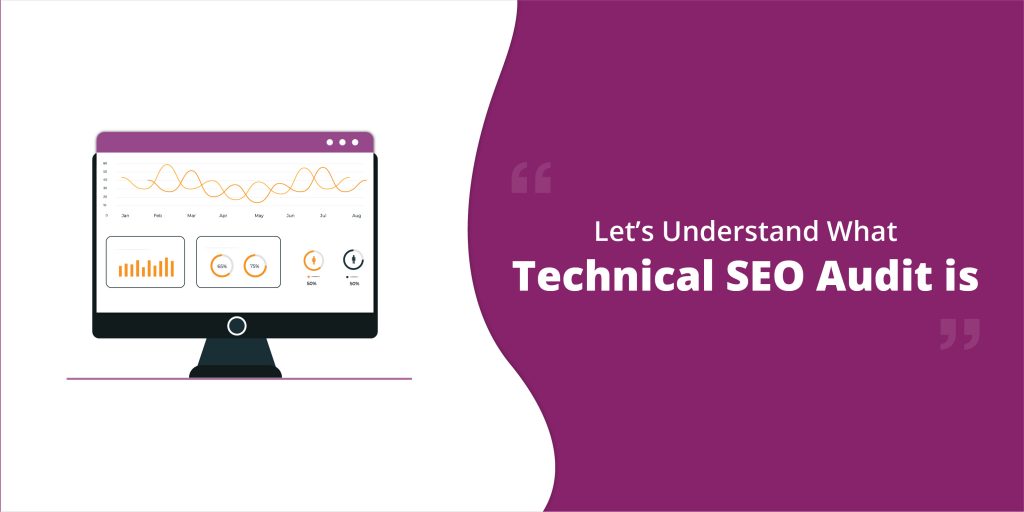
Technical SEO audit means the process of ensuring that your website can be easily seen, crawled and ranked among the top results by Google, Bing and other search engines.
Technical SEO is the area of SEO that takes care of optimizations needed to improve your site’s ranking in search engines by making it easier for search engines to crawl.
Improving the site loading time, checking robot.txt files, URL structure, redirections, sitemap, site errors, image delivery, etc. are some examples of what technical SEO includes.
Google & Bing, along with other search engines, prefer websites that follow webmaster guidelines. The fundamentals of the guidelines state that your website’s content should be user-friendly, accurate and easy to access.
Slow loading, unresponsive design and lack of secure connection are the ways to start on the wrong foot with these critically important guidelines.
Technical SEO audit plays the protagonist there to help with your website’s technical aspects and improving your site’s organic traffic.
What You Must Know About Technical SEO Audit images

Imagine a scenario where your website has the best content written and that article is what you want everyone to read.
Your site has a huge following and people would pay blindly just to have a read of this incredible article.
People are on the edge of their seats and waiting for the notification of your new article to come. And the moment finally comes.
You publish your article and the notification goes out. People eagerly click the link and try to read your article.
The page takes over 10 seconds to load! It’s a horrible scenario for you as the publisher of that article.
Your readers get annoyed by the waiting time and don’t want to read your article anymore.
You lose traffic every second that your page takes to load.
It won’t matter how great your content is, if your site isn’t functioning well, you will lose traffic.
That is just one aspect of technical SEO audit. Without technical SEO, it would be an impossible job for Google and other search engines to find, crawl and index your website.
You will become part of the majority that doesn’t get any organic search traffic from Google if search engines can’t access your website. Gee!
Even if search engines manage to find your site somehow, page loading issues, confusing navigation and other user-experience issues can still negatively impact your SEO.
Crucial Components of Technical SEO Audit that You Must Consider
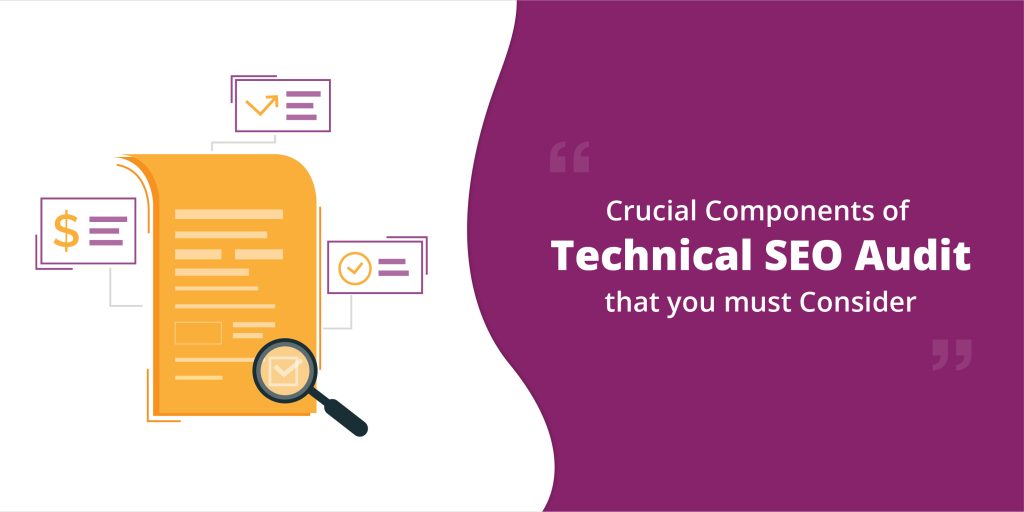
Crawling and indexing are two of the most important elements in SEO. However, there are many other important aspects that need consideration when performing a technical SEO audit.
These components include:
- Mobile Optimization
- Page Loading Speed
- Duplicate Pages/Content
- Broken Links
- Schemas
- Crawling Errors
- Images Issues
- URL Structure
- Site Security
- 301 Redirects
- 404 Pages
- XML Sitemaps
- Canonical Tags
- Site Architecture
- Web Vitals Audit
At the very least, a technically toned website should be secure, quick-loading, easily crawlable, have simple and functioning navigation, and not carry any duplicate content or broken links.
Also, your website should have systems in place to keep the users engaged even if they come across a dead-end. Content for 404 errors and 301 redirect pages for example.
Similarly, your website should have structured data that helps Google and search engines understand the content, in the form of schema graphs and XML sitemaps.
Note that your website must score good when you perform an audit of your website on web.dev. It is very important that your site performs well in all areas.
When performing a technical SEO audit, be aware that over-optimizing your website can actually hurt your SEO rankings. Yes, over-optimizing is a thing. Making too many improvements might not work with your best intentions.
Let’s Discuss How Best SEO Agencies Perform an SEO Audit

SEO audit means to analyse a website to see if it’s performing well on various search engines.
If you’re looking to outperform your competitors, find and fix exit points, identify opportunities within your site and create a better user-experience, an SEO audit is the perfect way to start.
For your website to have a healthy relationship with search engines, you should regularly perform technical SEO audits, on-page SEO audits and off-page SEO audits.
If you wish to identify and fix the technical or content related errors by yourself or without any help from SEO agencies, you must check out our blog on best SEO Audit Tool now!
As you go ahead with your audit there, you will discover areas where you can improve and optimize your website’s performance.
Don’t try to fix everything at once. Figure out the errors that are occurring and make a plan to fix them. The smart move here is to reach out to the best SEO agency and let them help you with all of that.
When You Hire the Right SEO Agency: How they Perform a Technical SEO Audit
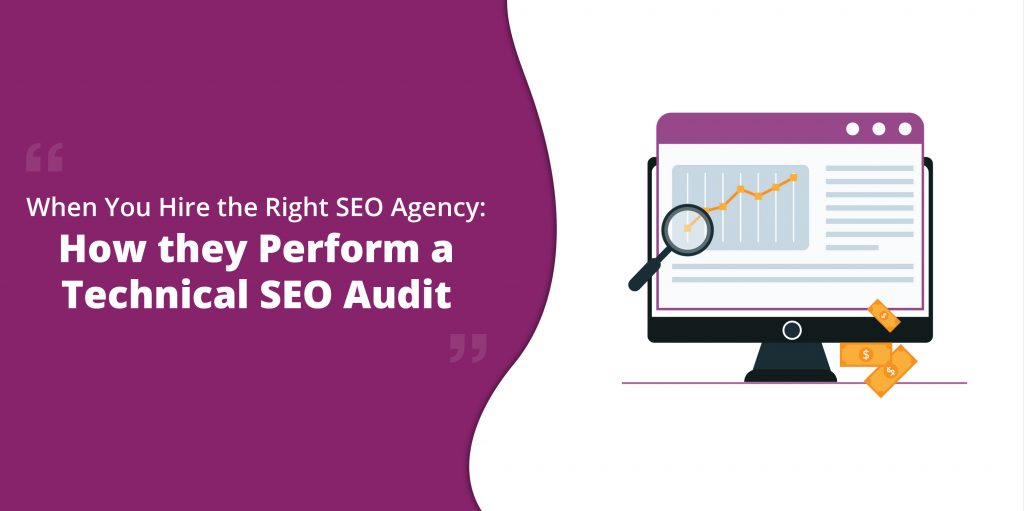
SEO guidelines keep changing constantly. SEO has to adapt whenever a major search engine updates its algorithm significantly. For example, the importance of relevant images and alt-text on page has increased significantly in the past few years.
However, the technical SEO doesn’t change as frequently. For example, it’s not like search engines or readers are going to be okay with slower speeds all of a sudden.
In fact, the average acceptable speed keeps dropping. This means that your site has to only get faster to keep up with the latest SEO standards.
Your website must be mobile-friendly. It’s one of the key points to have a mobile-friendly website.
Transparency is one of the fundamentals when building a trustful relationship. Here’s an insight about how the best SEO agencies perform SEO audit:
1. Crawl Your Site with Automated Tools
Crawling is the most important part of the SEO audit.
The first thing they do is start crawling your website with the help of tools such as Ahrefs, SEMrush, SpyFu or DeepCrawl.
Crawling helps with identifying problems like low word count, broken links, page title issues, poor images, duplicate content, unlinked pagination pages, excess redirects, etc.
In a nutshell, crawling gives them a peek into how your site is crawled by the Googlebot.
2. Manual Search on Search Engines
Performing a few manual searches will tell how well your website is performing in the SERPs. It helps figure out where to start your technical SEO audit.
The questions you need to ask are: How many pages of your website do appear in relevant search results? Does your site show up at the top of the page when you search its name? Where does your site show in the SERPs?
You can do that by simply performing a “site:rootdomain“ search to check which pages are the search engines actually crawling.
Missing pages doesn’t mean that your website is un-crawlable, but it is useful to get an idea of what’s going on around.
And, your website needs not to show up at the top of the searches. It will only show your website’s pages when you perform a site search.
When you have proper knowledge of what your hired SEO agency is doing, you can ask them to give a before and after ranking report of your webpages in SERPs.
3. Make sure your website has only one browsable version
If there are multiple “versions” of your websites, you’re sending mixed signals to search engines about how to crawl your site.
The crawlers don’t have a good eye about which one is the right one.
Your site’s SEO ranking gets negatively impacted if search engines have no idea how to show your website to potential traffic.
For example, a desktop and a mobile version of your website in conflict with each other or a “https” and a non-“https” version.
The influence of HTTP vs. HTTPS on a website’s SEO is a debatable topic in the SEO community.
Some of the sites using AdSense claim they see a decrease in revenue after switching to HTTPS.
Although, seemingly Google SEO is deprecating websites without the SSL protection moving forward.
In fact, Google is taking measures to make it more visible that which sites have the SSL protection and which don’t.
The ones without the SSL protection get marked as “Not Secure.”
You will need to make sure that your website only uses “HTTPS” after this change from Google.
So, when you hire an SEO agency, make sure they know the importance of this step when they perform an SEO audit on your website, to avoid the duplicate website penalties.
4. Critical On-page Technical SEO checks Performed by SEO Agencies
There are lots of things to check when evaluating your website after its crawling. Don’t get swamped! The first step is checking for duplicate pages, headers and title tags.
If your site has content with similar themes, some discrete content may show up in your crawl. You should look for duplicates of the same content.
You can take help of tools like Copyscape to solve technical SEO problems caused by duplicate content.
-
Page Titles & Title Tags
A title tag is a tag or an HTML code that notifies the search engines about the title of the page. This info will be shown in the SERPs.
You want to make sure that the title tags are in line with the content on the webpage. Also, ensure that the content answers the users’ questions as fast as possible.
The ideal length for the title tags is between 56-60 characters.
Check page title & title tags length here.
-
Meta Descriptions
Even though meta descriptions don’t directly impact the ranking, they’re still very important since that’s what users will be seeing first in the SERPs.
The meta description should be potent, engaging and should give an idea of what users will find on the page.
Google expanded the character limit for meta descriptions from 160 to 320 not very long ago, which offers even more value to draw in a click.
Check meta description length here.
-
Distinct Website Hierarchy
The next step in your SEO audit will be making sure your content is organized with a clear and distinct hierarchy on the page.
This makes Google’s job easy to analyse your website and index it for search.
Notably, make sure that the placement of pages is proper and makes sense. For example, there should be a “Products” tab that contains all the product pages.
See to it that users don’t have to navigate through 3-4 layers of pages to get to the best-selling products. The point is to simplify for Google, as well as users, to find what they’re looking for.
The right time to get to the top of SERPs is now. If you feel the same, proceed with this gig and get your journey to the top started.
-
Right Keyword Placement for SEO-Friendly Blog
The first 100 words of every page on your website has to have a focus keyword in them.
That helps search engines understand what the article is about.
Be careful though. You have to be strategic about keyword placement. Otherwise, you will be penalized for keyword stuffing.
Try to include the keyword(s) in the title, meta description, alt tags, URL and subheadings (h2, h3, etc.).
In total, on-page SEO checks are very important, but that’s only one aspect of your overall technical SEO strategy.
5. Manage internal and external links
Logical hierarchies improve SEO rankings. Which is exactly why it’s very important that you check your internal and external links, and ensure the visitors can navigate your site simply.
The deleted or moved pages result in broken links, which will annoy the visitors.
Don’t worry, you won’t have to do it manually.
There are tools like Ahrefs and Xenu Sleuth to help you identify broken links on your site.
Next step is changing any links marked with the “404 not found” label. These dead-ends negatively impact your technical SEO.
6. Check the site speed
Visitors are impatient and Google knows it.
The longer your site takes to load, the higher will be the chance of the visitors bouncing. They don’t like to wait around.
Check your site’s speed on PageSpeed Insights. It’s a tool provided by Google itself.
You can check loading speeds of both mobile site and desktop site.
Take immediate action if your website score is not adequate.
Optimizing the images on page, minifying JavaScript and CSS files, leveraging browser caching are some steps you can start with.
Also, you must consider CDNs and caching to improve your site’s loading speed. CDNs not only increase the loading speed of your site, it also helps prevent site crashes, while caching helps site’s loading speed by storing files and minimizing the toll on the server.
7. How SEO Agencies Leverage Analytics and Compare Site Metrics
In this step, they determine whether your analytics service, Google Analytics for example, reports live metric data or not.
If it does, the code is installed properly. If it doesn’t, your code isn’t installed properly and needs fixing.
In Google Analytics, the tracker code should be placed above the header of each page.
After having an analytics service up and running, they compare the metric data and the results of your earlier “site:rootdomain” search.
With that, they know if all the pages in your site are accepting the crawl requests properly or not.
Check Bounce Rate
Google Analytics helps SEO agencies a lot in assessing your page’s bounce rate.
If some page has a high bounce rate, it means that visitors aren’t finding what they’re hoping for.
That calls for you to optimize the content on your page according to the audience’s preference.
Performing a Backlink Audit
Next, SEO agencies perform a backlink audit with the help of automated tools such as Ahrefs and SEMrush and assess the sort of backlinks that lead to your site.
Backlinks help them assess current link profiles and if it’s affecting your site, identify the areas where you can get higher-value links, and assess the number of backlinks of your competitors.
Next step will be to analyse what your competitors are doing.
Competition Analysis
Your competitors are continuously upping their game, and SEO agencies are aware of that.
Competition analysis helps you understand what keywords your competitors are ranking for and what backlinks lead to their sites.
The analysis include:
- Volume of their keywords, meaning average number of searches the keyword gets.
- Position their URL is ranked at in search engine results.
- Estimated monthly traffic the page is getting for their keywords.
Final Thoughts: Technical SEO Audit – Best Strategy
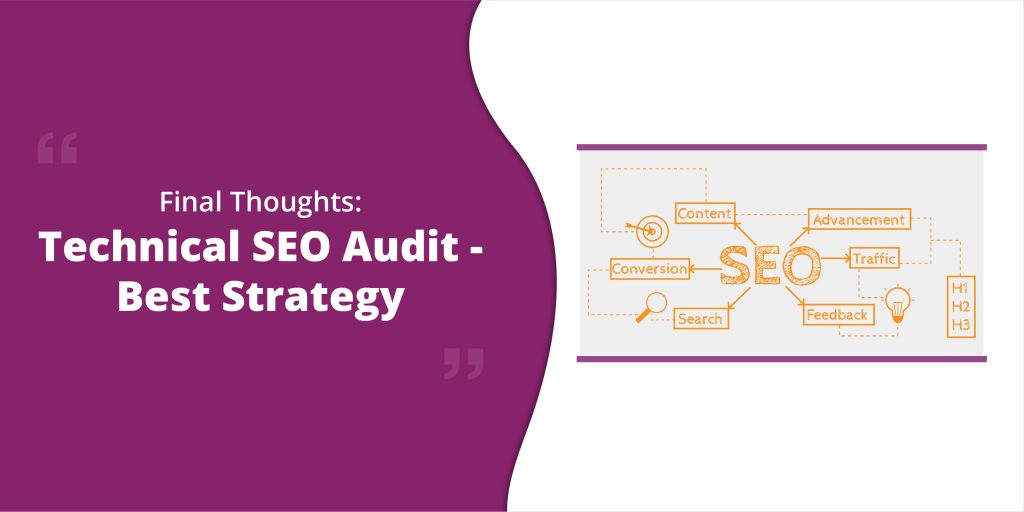
As you read in this article, SEO has three aspects to it; on-page SEO, off-page SEO and technical SEO.
As you went through this article, you must’ve realized that it’s not a very easy job to perform a proper technical SEO audit of your site.
It requires proper knowledge of how search engines work, advanced skills and advanced automated tools, along with commitment and diligence.
Performing all the steps yourself can be a little bit too much to handle, if you don’t have much experience in the field.
Don’t worry though, that is no reason why your site cannot be at the top of SERPs.
Digital Daisy is a leading SEO agency based in India with over 12 years of experience in digital marketing.
The best strategy to rank in the first page of search engines is to connect with professionals and let them do the job for you.
If you want to skip the line and get ahead of your competitors, you want to hire an SEO agency that knows its job.
If you find this article knowledgeable and feel like we know what we do, get in touch with us and let us help you with your rankings.
Jaykishan Motwani
Mehul is a content writer with the heart of a nomad. He is currently working with Digital Daisy and he is passionate about Quantum Physics, Tarantino’s dialogues, and Delhi’s street food. His weekends are well spent with his Golden Retriever recharging him with cuddles and walks.



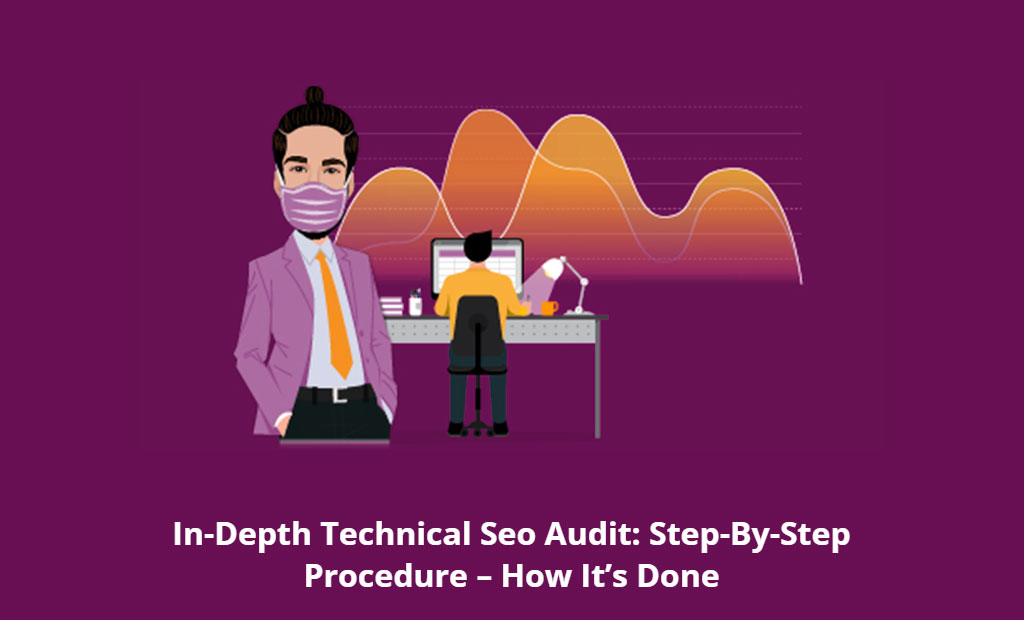

 Yes I'm In...
Yes I'm In...